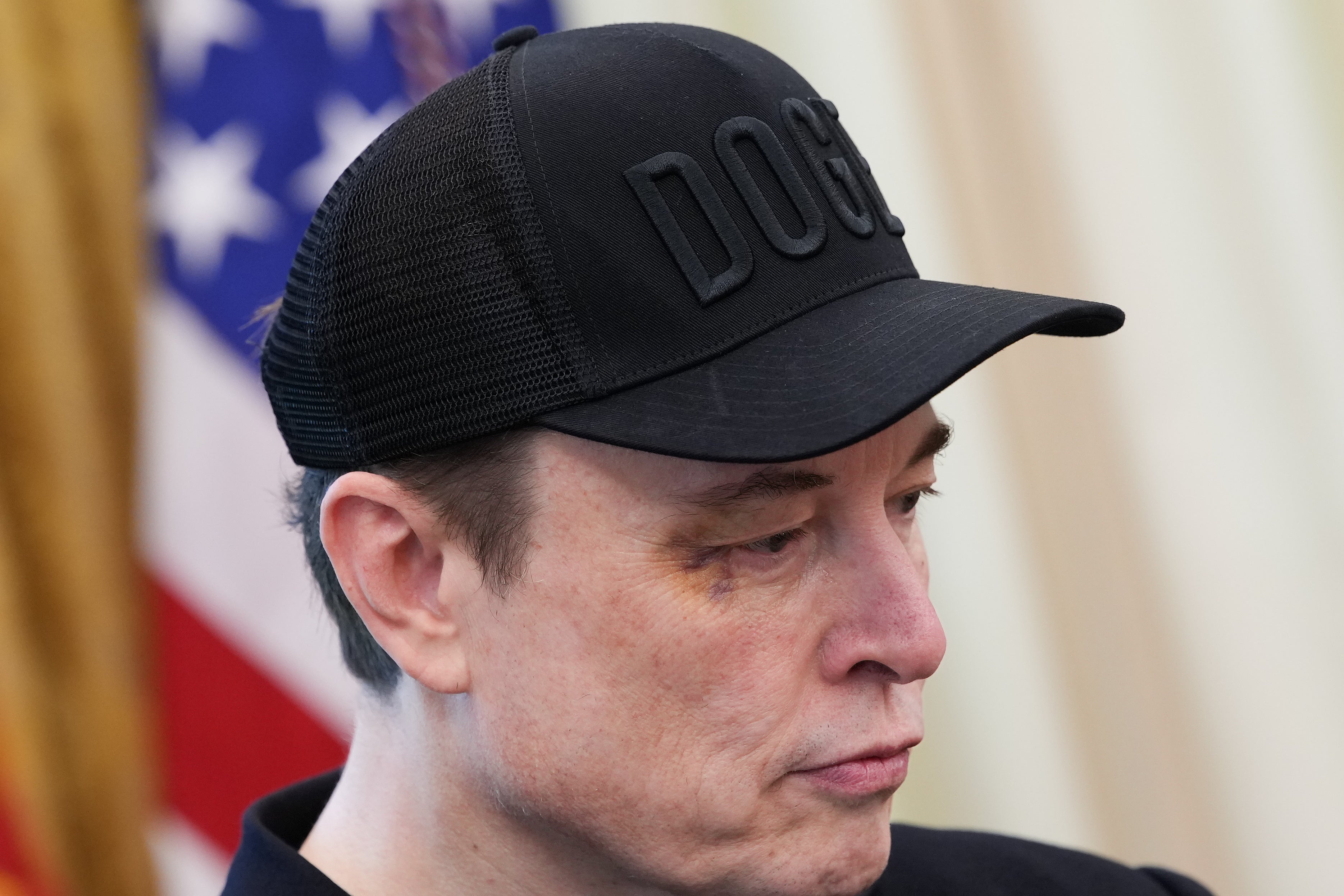ARTICLE AD BOX
Elon Musk departed Washington this week, bringing one of the weirdest sagas in the history of the presidency to a close.
Not everyone leaves DC with their reputation intact. But most people manage to get through it without their bladder control abilities making it into a New York Times exposé.
So ends the Elon show. On Sunday, Washington saw its last gasp — a final, awkward sitdown between Musk and CBS Sunday Morning. Despite an awkward attempt by Musk to change the terms of the interview last-minute and bar any mention of politics, he answered questions about the end of DOGE and the budget reconciliation plan endorsed by Donald Trump, Speaker Mike Johnson and the majority of House Republicans.
In his interview, Musk made it clear he hadn’t gotten the memo that Johnson and other Republicans want their caucus to lie about the Congressional Budget Office (CBO) score, which the speaker and others are now unconvincingly pretending is a group of liberal activists. Meanwhile, conservatives in their own caucus — the same deficit hawks who held Johnson to cuts of nearly $1 trillion affecting Medicaid — continue to cite the CBO’s methodology as they hammer Johnson and their colleagues for insufficient deficit spending cuts.
Musk’s comments on that budget bill, released in the lead-up to CBS’s interview last week, set off a firestorm in Washington. There was an obvious reason: Musk, in one fell swoop, undermined the entirety of the budget plan and essentially made Johnson out to be a liar — if you believe Musk, who no longer has a reason to play nice in Washington.
"I was, like, disappointed to see the massive spending bill, frankly, which increases the budget deficit, doesn't decrease it, and undermines the work that the DOGE team is doing,” Musk told CBS News. Musk’s demeanor was similar to the eyebrow-raising performance he delivered during his final press conference this week with Donald Trump — when he seemed visibly distracted by the gold ornamentation of the room and stood in a decidedly odd manner next to the (literally) sitting president of the United States.

"I think a bill can be big or it can be beautiful," he went on. "But I don't know if it could be both. My personal opinion."
Oops. With that quote, Musk did damage that was still being felt on Sunday, when the rest of his interview aired. At practically the same moment that his comments were re-broadcast, Speaker Mike Johnson was facing an uncomfortable grilling from NBC’s Meet the Press about the bill and whether it cut the deficit significantly, or even at all.
"I sent my good friend Elon a long text message explaining it can be big and beautiful," Johnson claimed. He repeated his insistence that the bill is “not going to add to the debt” during his own interview, despite the CBO’s outlook.
Certainly, the guy who brought the motto “move fast and break things” to Washington is going to read that text.
Regardless of how that particular conversation turns out, the damage is done. Johnson’s problem is simple: his own caucus does not believe his insistence about the “big, beautiful bill” being deficit-neutral. Why should anyone else?
Johnson wishes it were as simple as convincing Americans (and the media) that Democrats are the only ones opposed to his deficit math. In reality, some of the staunchest debt hawks in Washington — all conservatives — are in the same camp.
If one needs proof, they can simply ask Chip Roy, one of the leaders of those debt hawks. Roy, in his final statement about the bill’s passage in May, explained that he voted for the bill to achieve deficit cuts — but even he lamented that the bill did not go further in that regard.
“The good news is that the bill technically held true to that framework by yielding modest deficit reduction over a 10-year budget window,” said Roy. “Importantly, it does this by cutting spending $1.5 trillion over 10 years, reforming programs like Medicaid and SNAP with work requirements.”
It should be obvious, but just to be clear: “modest deficit reduction” does not equal a budget that is deficit-neutral. The “one big, beautiful bill” is still projected to add nearly $4 trillion to the deficit after those cuts, according to the CBO and other analysts.
This offhand comment from Musk won’t make his life any harder. He returns to Tesla, now bearing the brunt of a stunning drop in profits tied directly to his political activism. By doing so, he exits an unfamiliar arena: Washington, a place where public perception matters and can change on a dime.

It will, however, make things a lot harder for Johnson and Senate Republican leadership, the latter of whom will now oversee the bill’s fate for the next month. Already, Republicans are talking about changing the bill — including, potentially, by splitting “one” big beautiful bill into several. Those Senate Republicans only acquired more ammunition to defy the White House and Johnson on Sunday.
One of those Republicans is Ron Johnson, who, like his conservative allies in the House, has been one of the most vocal deficit spending watchdogs in Congress. Even before Musk’s latest comments, Johnson was publicly prepared to buck the White House over the bill’s price tag. After Sunday, the combination of the Musk interview and the Senate’s hair-thin margin may give him all the political cover he needs.
“Republican leaders repeatedly say, ‘We don't have a revenue problem, we have a spending problem,’” Johnson tweeted before the bill passed the House. “Right now, it doesn't appear that they are willing to fix it.”
“I am going to insist that we do,” he warned.









 English (US) ·
English (US) ·